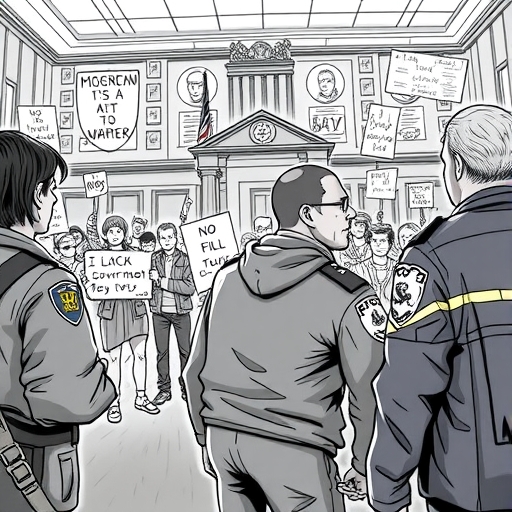
Sovereign Name Meaning: Understanding the Sovereign Citizen Movement’s Ideology, Tactics, and Risks
Table of Contents
ToggleUnderstanding the Sovereign Citizen Movement: Ideology, Tactics, and Risks
Have you ever encountered someone who claims they don’t have to follow government laws? Perhaps they assert that standard identification isn’t valid, or that they are exempt from taxes or court jurisdiction. If so, you might have encountered the ideology of the sovereign citizen movement.
This complex phenomenon involves individuals and groups who believe they are somehow separate from and not subject to the laws of the nations in which they reside, particularly in the United States, but also globally. Their beliefs are often based on intricate, pseudolegal theories that misinterpret established law. As we explore this movement, we’ll use a friendly, professional tone, breaking down these complex ideas like a teacher guiding you through a challenging subject. Our goal isn’t just to define; it’s to help you understand the core tenets, activities, origins, and the very real risks associated with this group.
Let’s begin by establishing what lies at the heart of this movement and why their claims, despite their often confident presentation, lack legal validity.
Key aspects of the Sovereign Citizen Movement include:
- Belief in independence from government authority.
- Focus on pseudolegal theories to justify their actions.
- Engagement in tactics such as “paper terrorism.”
The Core Tenet: Rejecting Government Authority
At the fundamental level, sovereign citizens adhere to the belief that they are not under the jurisdiction of their respective governments. This belief isn’t simply a political stance or a desire for minimal government; it’s an assertion that they exist outside the established legal framework entirely. They often declare themselves “sovereign” individuals, possessing ultimate, independent authority over their own lives and actions, purportedly free from state or federal laws.
Think of it like trying to opt out of the rules of a game you’re already playing. Sovereign citizens claim they can simply declare their non-participation in the “corporate” government system. They often distinguish between the “de jure” or rightful government (which they may believe no longer exists or is hidden) and the “de facto” or present government, which they view as an illegitimate corporation operating without their consent.

This core belief leads to their rejection of many common obligations and interactions with government. For example, they often deny the legitimacy of standard forms of identification like driver’s licenses or social security numbers. They may refuse to register vehicles, obtain permits, or comply with zoning laws. Why? Because, in their view, these are requirements imposed by an entity that has no lawful authority over them.
| Common Rejections | Description |
|---|---|
| Identification | Denying validity of driver’s licenses and social security numbers. |
| Vehicle Registration | Refusing to register vehicles or obtain necessary permits. |
| Zoning Laws | Ignoring local zoning laws and building permits. |
Understanding this foundational rejection of authority is crucial to grasping the movement’s subsequent actions and beliefs. It’s the root from which all their pseudolegal theories and confrontational tactics grow.
Pseudolegal Theories: The Foundation of Their Claims
How do sovereign citizens justify their rejection of government authority? This is where their complex and often bizarre pseudolegal theories come into play. These aren’t based on valid legal principles but on misinterpretations, distortions, and fabricated concepts woven together to create an alternative legal reality.
Imagine someone trying to prove that gravity doesn’t exist by selectively quoting physics textbooks out of context, adding in some made-up terms, and declaring their new theory is the real science. That’s analogous to how pseudolegal theories work. Sovereign citizens pore over legal documents, dictionaries, and historical texts, selectively picking out words, phrases, and archaic concepts, twisting their meanings, and assembling them into complex narratives that purport to show how the current legal system is fraudulent or doesn’t apply to them.
Common threads in these theories include ideas about hidden trusts or contracts created at birth (often linked to your birth certificate or Social Security Number), which supposedly grant the government power over a “strawman” entity representing you, while your true, sovereign self remains free. They might claim that laws written in all capital letters apply only to this “strawman” or to corporations, not to living, breathing natural persons.
Other theories might involve misinterpretations of maritime law, the Uniform Commercial Code (UCC), or various amendments to the Constitution. They might claim that driving requires a license only if you are engaged in commercial activity, or that common law grants them specific rights that override statutory law. These aren’t recognized legal arguments; they are elaborate fictions designed to justify their anti-government stance.
| Pseudolegal Claims | Description |
|---|---|
| Hidden Trusts | Theory that individuals have hidden trusts linked to their identities. |
| Strawman Theory | Belief that legal entities they are represented by are separate from their true selves. |
| Maritime Law Misinterpretation | Incorrectly applying maritime law to justify rejection of state laws. |
It’s essential to understand that these pseudolegal arguments have been universally rejected by courts. Judges consistently find them baseless and frivolous. However, within the sovereign citizen community, these theories are taught and reinforced, forming a core part of their shared belief system. It’s a self-contained echo chamber of legal misinformation.
Financial Claims: Evading Taxes and Discharging Debt
One significant area where sovereign citizen ideology intersects tangentially with finance is their approach to financial obligations, particularly taxes and debt. Since they believe they are not subject to government authority or its laws, it follows in their distorted logic that they are also exempt from financial requirements imposed by that government.
This leads to claims that income tax is illegal, or that the government owes them vast sums of money from those mythical birth trusts. They may refuse to pay taxes, file fraudulent tax returns claiming exemption, or engage in elaborate schemes based on their pseudolegal theories to try and discharge debts like mortgages, credit card balances, or student loans.
These financial claims are just as baseless as their other legal arguments. Tax obligations are a fundamental requirement of citizenship or residency, supported by clear statutory law and upheld by courts. Attempts to use sovereign citizen pseudolaw to evade taxes or debt collection inevitably fail in the legal system and can result in severe penalties, including fines, liens, and imprisonment.
| Financial Claims | Description |
|---|---|
| Tax Exemption | Claiming that income tax is imposition on sovereign individuals. |
| Discharging Debt | Using fraudulent methods to attempt discharging mortgages and loans. |
| Financial Seminars | Selling materials that promise financial freedom based on pseudolegal theories. |
Some prominent figures within the movement have also used these financial claims to promote profitable seminars and materials. They sell guides, templates, and “legal” documents that promise to help adherents eliminate debt, reclaim mythical funds, or achieve tax exemption. These are often little more than scams, preying on individuals facing financial hardship or those disillusioned with the system.
So, while the movement isn’t centered on financial trading or investment strategies, its ideology directly impacts personal finance by promoting illegal and ineffective methods for avoiding financial responsibilities. It’s a dangerous path that leads not to financial freedom, but to legal and financial ruin.
Tactics of Engagement: “Paper Terrorism”
Beyond simply holding these beliefs, sovereign citizens often actively engage with the legal system and government officials, primarily through tactics known as “paper terrorism.” This involves flooding courts and government offices with overwhelming amounts of complex, pseudolegal documents, filings, and liens.
Imagine your local court house receiving dozens or even hundreds of bizarre, intricately worded documents filled with legal-sounding jargon that makes no sense under real law. These filings might include:
- Frivolous lawsuits against judges, police officers, tax officials, or anyone else who challenges their claims.
- Bogus liens placed on the property of government officials to harass and intimidate them.
- Demands for astronomical sums of money based on their “strawman” or “birth trust” theories.
- Elaborate affidavits and declarations stating their sovereign status and rejection of jurisdiction.
The goal of “paper terrorism” isn’t necessarily to win in court (although they may believe they will). Often, the primary objectives are to:
- Harass, intimidate, and retaliate against officials who have crossed them.
- Clog the legal system and waste government resources.
- Create a paper trail they believe validates their claims (in their own minds).
- Attempt to delay or disrupt legal proceedings against them.
These tactics are a significant drain on court resources and pose a real threat to public servants. While courts are adept at recognizing and dismissing these filings, processing them still takes time and effort. Moreover, the threat of a baseless lien or a frivolous lawsuit can be distressing for the individuals targeted. Understanding “paper terrorism” is key to recognizing how the movement translates its ideology into action and challenges the system.
Tactics of Engagement: Confrontations with Law Enforcement
Another significant area where sovereign citizen ideology manifests is in direct interactions with law enforcement. Because they deny the authority of the state and its agents, routine encounters like traffic stops can quickly escalate into tense and potentially dangerous confrontations.
Imagine you are a police officer pulling someone over for a minor traffic violation. Instead of providing a license and registration, the driver begins lecturing you about maritime law, demanding to see your “bond,” stating they are “traveling,” not “driving” (as driving is commercial activity), or claiming you have no jurisdiction over them. They may refuse to identify themselves, refuse to sign documents, or refuse to exit the vehicle.

These interactions are unpredictable and can be highly volatile. Sovereign citizens often believe that by using specific language or refusing to comply with standard procedures, they can legally invalidate the officer’s authority and escape consequence. However, this is not the case. Police officers are enforcing established laws, and refusal to comply with lawful orders can lead to escalation, arrest, and potential charges.
Sadly, some encounters between sovereign citizens and law enforcement have turned violent, even fatal. The FBI classifies sovereign citizen extremists as a domestic terrorism threat, partly because of this demonstrated potential for violence against police officers and other government officials who they view as illegitimate agents of a tyrannical system. This makes encounters with individuals espousing these beliefs inherently risky for law enforcement personnel.
Therefore, understanding the potential for non-compliance and escalation is crucial for law enforcement agencies, who increasingly receive training on how to identify and handle interactions with individuals holding sovereign citizen beliefs.
Origins and Historical Roots
To understand the modern sovereign citizen movement, we need to look back at its origins, which are deeply rooted in earlier American extremist and conspiracy movements. The movement as we know it today largely emerged from the 1970s and 1980s.
One significant precursor was the Posse Comitatus group. This anti-government, white supremacist, and antisemitic organization, active in the 1970s and 1980s, believed that the only legitimate level of government was the county sheriff. They rejected federal and state authority and promoted various pseudolegal and conspiracy theories, including the idea that individuals could declare themselves free of state and federal law.
Many of the early pseudolegal concepts and anti-tax arguments adopted by sovereign citizens originated within Posse Comitatus and related groups. These groups also often intersected with or were influenced by the Christian Identity movement, a white supremacist religious ideology.
Over time, the core anti-government, pseudolegal ideology of Posse Comitatus was adopted and adapted by individuals and groups who didn’t necessarily share the overt racism and antisemitism, although those elements have persisted in some factions. The “redemption” movement in the 1990s, which focused on the mythical “strawman” and accessing hidden wealth, is another key lineage.

Understanding these historical roots helps us see that the movement didn’t appear out of nowhere. It evolved from existing extremist currents, shedding some of the more explicit hate rhetoric (though it remains present in many areas) while retaining the central rejection of government authority and the reliance on elaborate, false legal theories.
Spread and Evolution: Beyond the US and New Labels
While the sovereign citizen movement is most prominent in the United States, its ideology and tactics have regrettably spread internationally. Similar groups and individuals espousing comparable beliefs about rejecting state authority through pseudolegal means have appeared in countries like Canada (where they are often referred to as “freemen on the land”), Australia, the United Kingdom, and Ireland.
This international spread suggests that the underlying anti-government sentiment and susceptibility to complex conspiracy theories are not confined to one nation. Factors contributing to its growth globally include:
- Economic hardship and disillusionment with government handling of crises.
- Increased access to and spread of disinformation online, which allows pseudolegal theories to propagate rapidly.
- Growing distrust in institutions and bureaucracy.
- Political polarization and anti-establishment sentiment.
Moreover, the movement isn’t static; it continues to evolve. In recent years, there have been shifts in demographics, with some observers noting an increase in younger adherents and women. The terminology also changes. For instance, a growing segment, particularly in the US, identifies as “American State Nationals” (ASN) or members of the “National Assembly” or “American States Assembly.”
Groups like the ASN Study Guide & University promote this specific terminology, claiming that individuals can reclaim their true status as “nationals” of their specific state republic, thus freeing themselves from federal or corporate control. While the language and branding may differ from older sovereign citizen groups, the core belief in opting out of government authority through pseudolegal processes remains fundamentally the same. This evolution makes tracking and identifying adherents more complex for law enforcement and researchers.
Threat Classification and Law Enforcement Response
Given their potential for violence and their active efforts to subvert legal processes, law enforcement and security agencies around the world classify elements of the sovereign citizen movement as a domestic threat. As mentioned earlier, the FBI in the United States specifically designates sovereign citizen extremists as a form of domestic terrorism.
Why such a serious classification? Because, while many adherents are primarily focused on “paper terrorism” and civil disobedience, a significant number have demonstrated a willingness to use violence against authorities when confronted. Incidents involving sovereign citizens resulting in the injury or death of law enforcement officers have occurred. Their belief that government officials are illegitimate and are acting unlawfully can lead to violent resistance during arrests or other official interactions.
Examples include tragic shootouts during traffic stops or standoffs with individuals who refuse to surrender to police authority, convinced that doing so would violate their sovereign status. High-profile arrests of movement leaders for promoting fraudulent schemes or engaging in illegal activities also highlight the risks posed by the movement’s operational aspects.
In response, law enforcement agencies have invested in training programs designed to help officers recognize the signs of sovereign citizen ideology during encounters. This training aims to de-escalate situations where possible, understand the pseudolegal arguments being used (and why they are invalid), and prepare for potential non-compliance or resistance. Courts and legal professionals have also developed strategies to efficiently handle and dismiss frivolous sovereign citizen filings.
It’s important to distinguish mainstream political dissent or even tax protest (which operates within known legal challenges, albeit sometimes aggressively) from the sovereign citizen movement’s wholesale rejection of legal and governmental authority based on demonstrably false pseudolegal claims. It is this fundamental denial of the rule of law, combined with the potential for violent resistance, that leads to its classification as a serious domestic security concern.
Concluding Thoughts: The Persistent Challenge
As we’ve explored, the sovereign citizen movement represents a significant and persistent challenge to the rule of law and the authority of government in various countries. It is built upon a foundation of complex, demonstrably false pseudolegal theories that have no basis in reality or recognized law. Yet, these beliefs motivate adherents to engage in disruptive tactics, from overwhelming courts with “paper terrorism” to potentially dangerous confrontations with law enforcement.
Originating from earlier extremist groups with roots in racism and antisemitism, the movement has evolved, spread internationally, and adopted new labels like “American State Nationals,” but its core anti-government ideology remains consistent. Authorities, recognizing the potential for violence and disruption, classify active elements as a form of domestic terrorism.
Understanding the sovereign citizen movement requires looking beyond the surface-level claims and delving into the pseudolegal reasoning, the historical context, and the operational tactics. It’s a movement fueled by distrust, misinformation, and conspiracy theories, posing risks not only to the officials they target but also to the adherents themselves, who face severe legal and financial consequences for acting on these baseless beliefs.
Continued awareness and informed responses from government, law enforcement, and the public are crucial in addressing the challenges posed by this complex and evolving anti-government phenomenon.
sovereign name meaningFAQ
Q:What is the core belief of the sovereign citizen movement?
A:The movement centers on the belief that individuals are not subject to government authority and exist outside the legal framework.
Q:How do sovereign citizens justify their beliefs?
A:They rely on pseudolegal theories that distort established law, often involving misinterpretations of legal documents and concepts.
Q:Why are sovereign citizens considered a threat by law enforcement?
A:They often engage in “paper terrorism,” obstruct legal processes, and may resort to violence when confronted by authorities.
You may also like
Calendar
| 一 | 二 | 三 | 四 | 五 | 六 | 日 |
|---|---|---|---|---|---|---|
| 1 | 2 | 3 | 4 | 5 | 6 | 7 |
| 8 | 9 | 10 | 11 | 12 | 13 | 14 |
| 15 | 16 | 17 | 18 | 19 | 20 | 21 |
| 22 | 23 | 24 | 25 | 26 | 27 | 28 |
| 29 | 30 | 31 | ||||
發佈留言
很抱歉,必須登入網站才能發佈留言。